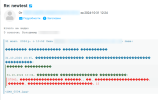That's a bit harsh. Let's give the developers a chance to identify the bug and understand what’s causing the issue before jumping to conclusions. Plesk is a complex system, and sometimes unexpected issues pop up in specific setups. A bit of patience could go a long way here.
Yes, maybe a bit harsh, but Plesk is ignoring the community’s desire for a more stable update management. There are already several threads about this. The hosting business needs stability first, stability second, and stability third.
Currently, Plesk does not have a stable release line that only receives bug fixes. Each month, new features are mixed with patches, leading to severe issues multiple times per year. Additionally, there is no way to roll back an upgrade if the version is unstable.
For that reason, we are still using Plesk Obsidian 18.0.63 Update #4. We feel like beta testers for the software we pay for. Ideally, I would like a stable release line that only receives bug fixes. New features could be bundled into a yearly or semi-annual feature release, while the stable release remains supported for at least six months to a year.
Alternatively, instead of releasing a new version every month, Plesk could test each version on its own infrastructure first, using release candidates (RCs).
Currently, we’ve opted to disable Plesk auto-updates to avoid losing clients, as the hosting business doesn’t tolerate mistakes. We typically begin our internal testing of a release only after Update #3, when no major bugs are reported in the Plesk forum.
Another issue is that we don’t even have an open list of bugs and problems introduced with new versions. Greater transparency here would help us assess whether new bugs impact our client base.


